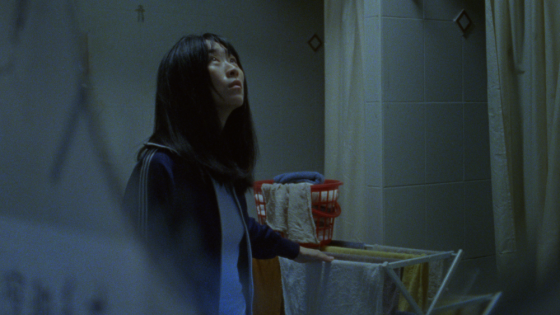The intimate and naturalistic Mandarin-language drama “Blue Sun Palace” has nabbed the French Touch prize from the Cannes Critics’ Week jury, putting Chinese-American writer-director Constance Tsang on the map as a talent to watch after her feature debut. Certain to see future festival action, the drama about three working-class Chinese immigrants in Flushing, NY, the film succeeds with touching performances from Ke-Xi Wu (“Nina Wu”), Lee Kang Sheng (Tsai Ming Liang’s iconic actor) and Haixpeng Xu (“Where Echoes Never End”) that could tempt distributors in the coming months.
Although the borough of Queens is pone of the most diverse places on the planet, the insular world of “Blue Sun Palace” is almost solely Chinese, unfolding in New York’s largest Chinatown. Taiwanese Amy (Ke-Xi Wu) and mainlander Didi (Haixpeng Xu) work along with two other women in a massage parlor with an exclusively male clientele. The sign on the door stipulates “No Sexual Services,” but the masseuses receive bigger tips if they provide what the trade dubs a “happy ending.” While the job isn’t exactly pleasant, the women evince a positive camaraderie, necessary for group who share a small living and working space. Moreover, Didi and Amy, who are particularly close, are saving to open a restaurant in Baltimore where Didi’s young daughter lives with her aunt.
Meanwhile, outside of office hours, pretty, cheerful Didi is seeing Cheung (Tsai Ming-liang regular Lee Kang Sheng), a lonely, middle-aged Taiwanese man who ekes out a living in the construction trade and sends money home to his sick mother, wife and daughter. The film’s intimately shot opening moments show them enjoying each other’s company at a restaurant and singing karaoke at a club.
Tsang’s minimalist screenplay unfolds in two time periods, divided by a traumatic event on the Lunar New Year (and the film’s opening credits some 33 minutes in). After the narrative rupture, the relationship between the characters realigns and a theme of finding comfort amid grief comes to the fore.
More akin to European art films than to American indies, “Palace” prioritizes mood over plot. Tsang allows her experienced actors plenty of breathing space to convey the melancholy of their existence in situations where dreams are more likely to be deferred than to come true, but are necessary nevertheless. It seems odd, though, that she provides the character of Cheung a backstory that explains why he is a migrant and remains in his dead-end job, but neither Amy or Didi receive one.
As befits a film that cites a massage consultant in the closing credits, the scene that most lingers after the film ends is a lengthy one showing the treatment Amy performs on a Caucasian client. Claustrophobically shot by experienced Canadian DP Norm Li, it epitomizes the drawbacks of her profession. Indeed, Li’s tender yet tightly framed cinematography, shot on Kodak film, underlines the confined situations in which the characters exist and captures their cluttered surroundings with a documentarian’s eye. Composer Sami Jano provides an effective but sparsely used score.
Source Agencies




